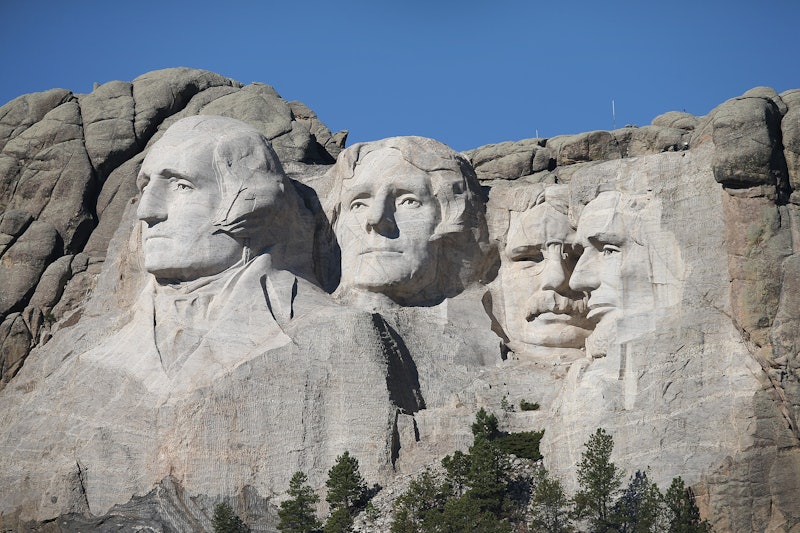
If you're like most Americans, Presidents Day is the equivalent of Black Friday or Cyber Monday. Presidents Day sales anyone? However, it wasn't always a day for shopping — and the history of Presidents Day explains why this holiday is actually really important. Remember that guy who's famous for saying, "I cannot tell a lie" when his father confronted him for chopping down a cherry tree? That was George Washington, the first president of the United States, the man who Presidents Day was originally set aside to honor.
"In the earlier years, when it was celebrated, it was more than celebrating his birth, it was celebrating what we liked about Washington: He walked away from power, a very poignant lesson for people," said Presidential Historian Doug Wead in an article on CNN by Ed Hornick.
With President Donald Trump seemingly more obsessed with tweeting and complaining that the press is unfair than with the real problems plaguing our country, walking away from power in favor of a democratic process demonstrates an integrity our current drunk-with-power president clearly lacks.
After Washington defeated the British army in 1783, he resigned as commander in chief of the Continental Army instead of seizing power and establishing a dictatorship. He was then elected president in 1789 (though to be fair only 6 percent of the population had the right to vote).
Despite how we may feel about how this country was established (I feel pretty poorly about it), Washington's lesson in integrity is an important one that seems to have been lost during the last 50 years.
"Part of that is cynicism about presidents today — Nixon, Johnson, Carter, Clinton, Bush ... there's less respect," Wead told CNN. "There was a lot of respect for Washington because he walked away from power. That was just unheard of."
For the past four decades Presidents Day has fallen on the third Monday in February, but it was originally celebrated Feb. 22, Washington's actual birthday. According to History.com, the holiday became popularly known as Presidents Day after it was moved as part of 1971’s Uniform Monday Holiday Act, an attempt to create more three-day weekends for the nation’s workers (translation: extra day of shopping).
The act also included a provision to combine the celebration of Washington’s Birthday with America's 16th president, Abraham Lincoln’s birthday (which was Feb. 12). Because the day falls near the two presidents' birthdays, many people believe the holiday is in celebration of Lincoln and Washington only. It's actually to honor all American presidents (though I think we can agree that they don't all deserve this honor).
The first official Presidents Day was in 1800 to celebrate Washington who died in 1799. It became a federal holiday in the 1870s in Washington, D.C, and nationwide in 1885. After the Uniform Monday Holiday Act made Presidents Day a bank holiday, meaning many people have the day off of work, retailers saw an opportunity to advertise sales, and of course it worked. After all, what's more American than consumerism?
If you have a bad taste in your mouth about Trump, skip the sales and have a (Not My) Presidents Day of action instead.
Image: Getty Images; GIPHY (2)